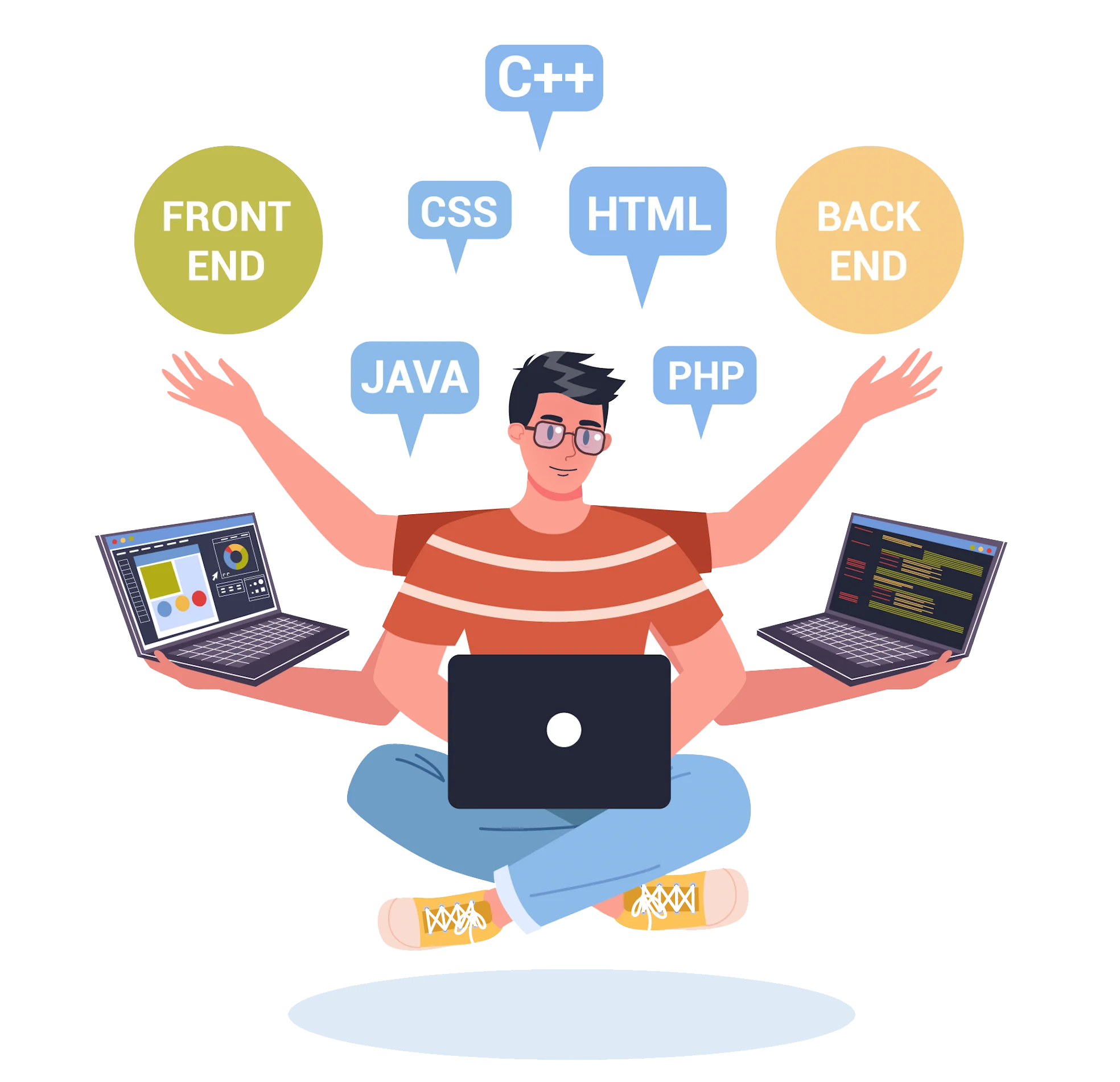Schedule a Developer Interview and Get 1 week Risk-Free Trial
We ensure you’re matched with the right talent resource based on your requirement.
Choose the model that fits your business goals with clear pricing and no overheads
Our team has extensive expertise to provide you with carefully selected talent in just a few days.
Let’s connect on a call, where you can share your unique needs, and we’ll match you with the ideal candidates.
Within an average of 2 days, receive a curated list of ready-to-work specialists, along with the option to book a call and interview them directly.
Onboard your new team members in 2 weeks or less. We’ll take care of onboarding tasks, ensuring your progress stays on track.

Netset Software offers expert Full Stack Developers to create powerful, scalable AI solutions customized to your requirements.
Our full stack development company provides complete solutions across the entire software lifecycle.
Design and build robust, scalable applications with seamless front-end and back-end integration.
Develop enterprise-grade systems to streamline operations, integrate data, and scale with your business.
Build and integrate RESTful and GraphQL APIs for smooth interoperability across systems.
From prototyping to intuitive front-end design and secure back-end, we bring product ideas to life.
Upgrade legacy applications to modern full stack frameworks for better performance and maintainability.
Ongoing monitoring, optimization, and feature enhancements to ensure long-term application success.
Our Full Stack developers are proficient in modern technologies to deliver top-quality solutions.

ReactJS

Angular

Vue.js

Next.js
HTML5

CSS3

JavaScript
TypeScript
Node.js
Express.js

Django
Spring Boot
.NET Core

PHP/Laravel

MySQL

PostgreSQL
MongoDB

Redis
Firebase
AWS
Azure
Google Cloud
Docker
Kubernetes
Jenkins
REST APIs

GraphQL
Apollo
Jest
Mocha
Jasmine
Selenium
Cypress
Hiring Full Stack developers from NetSet means gaining a partner who delivers not just code, but outcomes aligned to your business vision.

At NetSet Software, we provide flexible engagement options to help you hire Full Stack developers on your terms.

Best for projects with well-defined scope and deliverables.
Predictable costs and timeline
Ideal for MVPs and short-term projects
Pay only for the actual hours and resources used. Perfect for projects with evolving requirements.
Pay-as-you-go model
Maximum flexibility


Hire a full-time offshore Full Stack development team working exclusively on your project.
Seamless integration with your in-house team
Best for long-term and complex enterprise projects